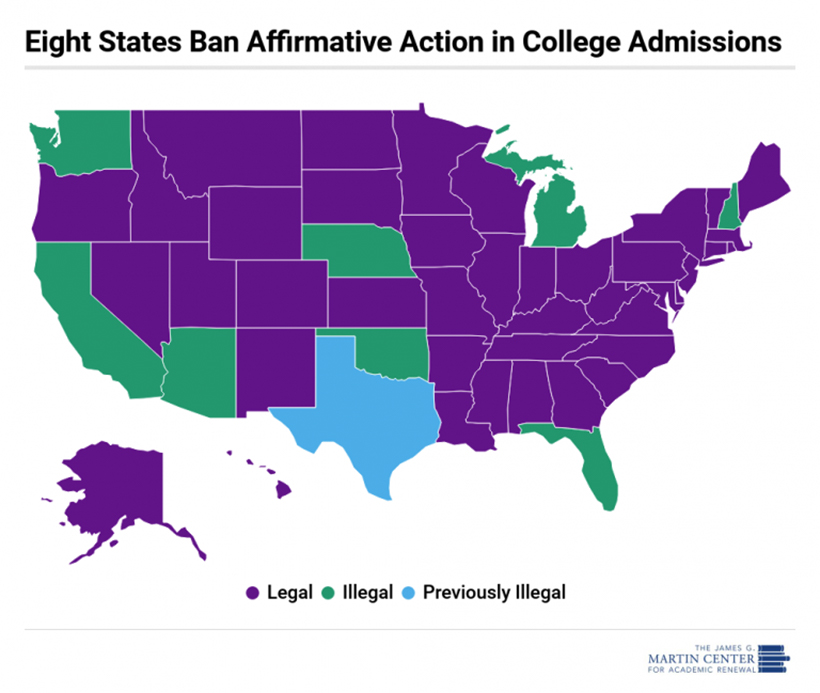Publisher's note: The James G. Martin Center for Academic Renewal is a nonprofit institute dedicated to improving higher education in North Carolina and the nation. Located in Raleigh, North Carolina, it has been an independent 501(c)(3) organization since 2003. It was known as the John W. Pope Center for Higher Education Policy until early January 2017.
The author of this post is Jenna A. Robinson.

Earlier this month, the U.S. District Court for the District of Massachusetts released its ruling in
Students For Fair Admissions v. Harvard University. That means affirmative action-its application and limitations-is back in the news.
In her ruling, federal Judge Allison Burroughs wrote,
"Ensuring diversity at Harvard relies, in part, on race-conscious admissions. Race conscious admissions will always penalize to some extent the groups that are not being advantaged by the process, but this is justified by the compelling interest in diversity and all the benefits that flow from a diverse college population."
But many people disagree. In the abstract, affirmative action in admissions is popular. Earlier this year, 71 percent of poll respondents told the
Pew Research Center that
"affirmative action programs designed to increase the number of black and minority students on college campuses" are a good thing. But when
Gallup and Inside Higher Ed asked which factors colleges and universities should consider for admissions, only 38 percent of respondents said that race or ethnicity should be considered at all in the decision. It seems that although Americans are in favor of increased minority enrollment, they don't like explicitly using race in admissions decisions.
Beginning in the 1990s, Americans made their views known in a series of referenda on the use of affirmative action. Since 1996, nine states have voted to ban the use of affirmative action in college admission: California (1996), Texas (1996), Washington (1998), Florida (1999), Michigan (2006), Nebraska (2008), Arizona (2010), New Hampshire (2012), and Oklahoma (2012). However, Texas' ban was reversed by the 2003
Grutter v. Bollinger decision. Eight states still ban the policy.
The Martin Center wrote about
Students For Fair Admissions v. Harvard University HERE and
HERE.
Jenna A. Robinson is president of the James G. Martin Center for Academic Renewal.

























